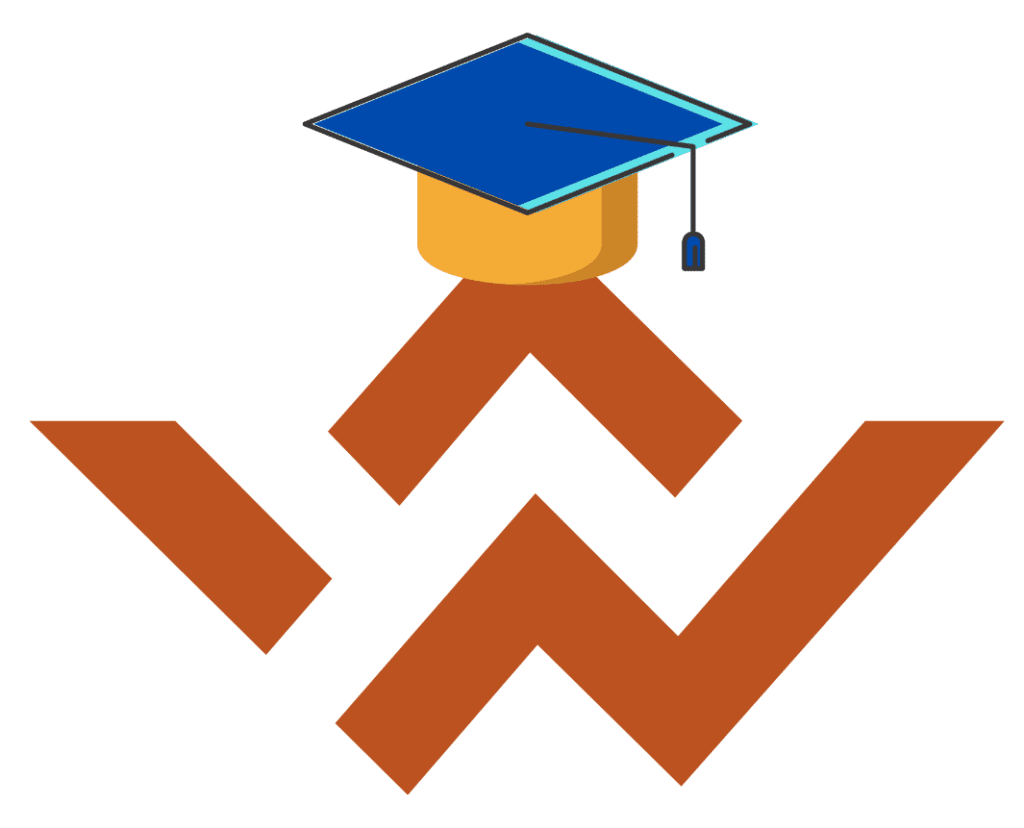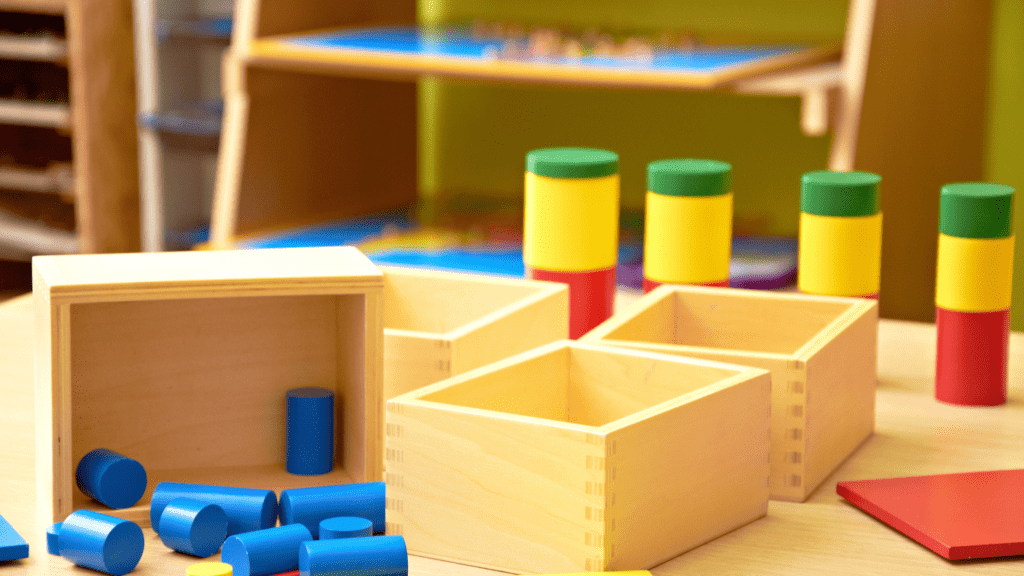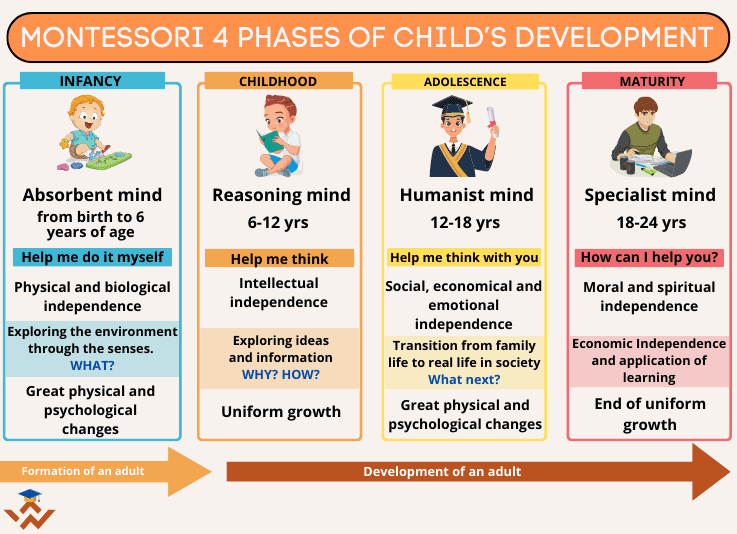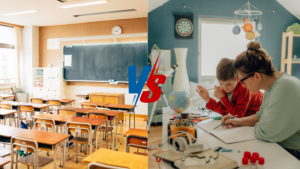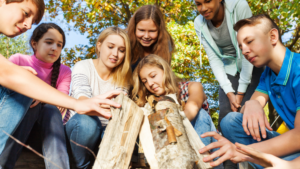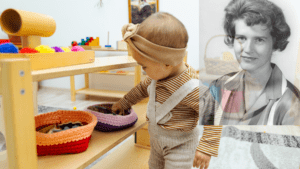Introduction
Picking up the right school for the child’s education is the start of molding a bright healthy future for the toddler. And as the new season is on the start, parents must be wondering and concerned regarding the school to get their children enrolled. Since this is such a sensitive decision to make, one must conceitedly analyze what kind of education to pick for the child.
Over the past century, the Montessori Method has been used by a wide range of cultures and is a successful method of education. Many parents are attracted to Montessori education because it offers a different way of approaching education that focuses on the needs of the child as an individual.
What is Montessori Education?
The Montessori method is based on the idea that children should be treated as individuals with their own interests, personalities, and learning styles. This approach emphasizes the importance of self-directed learning, hands-on activities, and individualized instruction. Children are given the freedom to choose their own learning activities and are encouraged to explore their interests and passions. The child progresses not only academically but also develops social-emotional skills, cognitive skills, kinesthetic skills and other linguistic skills too.
In our previous blog, we have discussed the principles of Montessori education. Some of the distinguished features of the Montessori Method of education are hands-on learning, uninterrupted work periods, mixed-age group learning, and a broader range of subjects.
Its unique subject areas, such as practical life and sensorial activities, help to build the foundation for the development of a child’s independence and responsibility. Through the process of trial and error, the child learns to take responsibility for their own actions and practice self-care. The activities also provide children with a sense of control over their environment, which can be beneficial for developing their self-confidence.
Who is Dr. Maria Montessori?
In 1896, Dr. Maria Montessori achieved a Medicine degree from the University of Rome (Kramer, 2017). She subsequently continued working at the university’s psychiatric clinic with children who had developmental delays. When visiting mental health facilities in Rome as part of her work, Montessori noticed that children there needed more stimulation.
She started to develop her own pedagogical theory at this point. She began pursuing pedagogy classes and researching educational philosophy (Kramer, 2017).
In 1900, Montessori joined as co-director of the Scuola Magistrale Ortofrenica, a training facility for educators of children with mental disabilities. She continued in her academic pursuits, consistently reading and writing, and eventually receiving a philosophy degree from the University of Rome.
Dr. Maria Montessori made the decision to adapt an instructional approach regardless of each person’s developmental capacity. She inaugurated her first classroom, the Casa dei Bambini, or Children’s House, on January 6th, 1907. 50 to 60 children of age group 2 to 7 years were enrolled when the school initially started (Kramer, 2017).
Dr. Maria Montessori observed how free choices made the children engross themselves with interest in the activities they chose to engage in. She also observed that mixed age-group learning is beneficial for the children to make them responsible and kind people. More such observations fueled the further development of the Montessori Method and spread it across the world.
Theories that the Montessori Method Follows
Montessori Method is based on two theories:
- Theory of Learning: Children learn by using their senses and taking in the world around them. They also use their own minds to overcome challenges, make sense of information, and solve problems.
- Theory of operant conditioning: It is a behaviorist theory that was first described by behaviorist B.F. Skinner. It is also referred to as instrumental conditioning. It states that – rewards and punishments should be used to modify or improve behavior. Behavior that is followed by a pleasant consequence is likely to be repeated and behavior followed by an unpleasant consequence is less likely to be repeated.
What are the 4 Phases of Child’s Development in Montessori Education?
Maria Montessori’s philosophy of education is based on the belief that children are naturally curious and will learn best in an environment that encourages exploration and discovery. In Montessori schools, a child’s growth is emphasized through an array of discrete stages that last far into adulthood. Each phase/stage is marked by specific characteristics and developmental milestones.
Phase #1: Infancy – from birth to 6 years of age
This is a crucial stage that emphasizes on the child’s capability to absorb new information. Montessori believed that infants learn best through their senses, and therefore, it is important to provide them with opportunities to explore and interact with their environment through touch, sound, and movement. In Montessori classrooms, children are provided with safe and supportive environments. This encourages them to explore and discover the world around them.
At this stage, infants develop fine and gross motor skills. Children will progress in independent play and task completion during the first phase of development, and practice – I can do by myself.
Phase #2: Childhood – from 6 to 12 years of age
After developing the core cognitive milestones, the child is set to develop their intellectual abilities. Montessori believed that it is important to provide children with the freedom to choose their own activities, work at their own pace, and learn through hands-on experiences. Practical life skills, such as cooking and cleaning, as well as academic subjects, such as language, mathematics, and cultural studies are added in the Montessori curriculum.
At this stage, Children learn to work collaboratively and independently. Children will develop the skills and knowledge they need to achieve their goals, and practice – I can think for myself.
Phase #3: Adolescence – from 12 to 18 years of age
Montessori believed that it is important to provide adolescents with opportunities to explore their interests and passions and to develop their own sense of purpose and meaning. This third phase of development helps adolescent’s emotional, physical, and social development to achieve new heights and supports their ability to learn and apply.
At this stage, adolescents learn to develop critical thinking skills, problem-solving skills, and the ability to work collaboratively with others. They gain the ability to make independent decisions, mingle up in a social environment, develop emotional independence, and practice – I can decide and stand on my own.
Phase #4: Adulthood – from 18 to 24 years of age
Finally, as a child moves from adolescence to young adulthood, their maturity grows. The adults discover their spiritual and emotional selves and develop more cognitive skills. Adulthood is characterized by the pursuit of personal and professional goals, as well as the development of a sense of purpose and meaning. Montessori believed that education is a lifelong process and that adults can continue to learn and grow throughout their lives.
At this stage, adults desire to be financially independent and develop sovereignty in decision-making. They gain varied experiences, achieve their goals, pursue their interests, contribute to their communities in meaningful ways, and practice – I can get it on my own.
Overall, Montessori education takes into account the different phases of development in children and provides an individualized approach to learning that supports children’s unique needs and abilities at each stage of their growth and development.
Montessori curriculum
The Montessori curriculum is designed to encourage self-directed learning, which means that children are given the freedom to pursue their interests and work at their own pace. This approach helps children develop a sense of responsibility and self-motivation, which can be beneficial throughout their lives.
There is much research that shows how Montessori students are active learners, knowledgeable, accountable, and well-nurtured person. This is one of the main benefits of Montessori education. Chloë Marshall in his research says, “It should be noted that for Montessori the goal of education is to allow the child’s optimal development (intellectual, physical, emotional and social) to unfold”.
To learn about more benefits of Montessori education for parents and children, click here.
Pros and Cons of Montessori Education
No educational approach is perfect. One type of education method which has done wonders for a child may not be good for the other. As it is said that every child is unique, so are the educational methods.
To decide if the Montessori Method of education is right for the child, let us weigh the pros and cons of the Montessori Method.
Pros of Montessori Education
- Children are encouraged to pursue their interests and work at their own pace-Montessori education emphasizes individualized learning, where students are encouraged to work at their own pace and are given the freedom to choose their own activities. This can help students develop a sense of independence and self-motivation.
- It promotes hands-on learning – Students are encouraged to use Montessori materials and engage in activities that allow them to explore concepts in a practical way. This approach can be particularly effective for children who struggle with traditional teaching methods or have learning differences. Montessori classrooms are filled with a variety of materials that students can use to explore concepts in a hands-on way. For example, a child learning count might use colored bead bars. Each bead represents a unique number helping to count easily. A child can also use the material to do more complex concepts such as addition or subtraction.
- It emphasizes social and emotional development – Montessori education places a strong emphasis on social and emotional development, helping students develop empathy, compassion, and respect for others.These skills are essential for success in both academic and personal settings.
- Montessori education fosters independence in children – In the Montessori method, children learn at an early age to make their own choices. In the classroom, the Montessori guide is always present to assist the child but typically observes rather than interfere with their work. This approach helps the child gain confidence in completing tasks independently and succeeding without external pressure. Ultimately, this type of learning fosters independence and prepares the child to be a critical thinker, problem solver, and diligent worker.
- Nurturing environment – Montessori classrooms are designed to be supportive and nurturing environments that encourage exploration and discovery. This can help students develop a love of learning and a sense of curiosity about the world around them.
Cons of Montessori Education
- Lack of structure – One potential drawback of Montessori education is that it may not provide enough structure for some students. The self-directed learning approach can be challenging for children who need more guidance and support. Additionally, because students are given a lot of freedom, there is a risk that they may not learn important skills or concepts that are necessary for success in traditional academic settings.
- Difference in the approach – Another disadvantage of Montessori education is that it may not be suitable for all learners. Some students may struggle with the self-directed learning approach, or they may not thrive in a less structured environment. Additionally, because Montessori education is not as widely available as traditional schooling, it may be difficult for some families to access it.
- Cost probability – Finally, Montessori education can be more expensive than traditional schooling. The costs associated with materials, teacher training, and other expenses can make it difficult for some families to afford.
- Limited focus on standardized testing – Montessori education places less emphasis on standardized testing compared to more traditional educational approaches. While this can be a positive aspect for some students, it may be a disadvantage for those who need to take standardized tests for college admission or other purposes.
| Pros of Montessori Education | Cons of Montessori Education |
|---|---|
| 1. Child-Centered Learning: Montessori education is known for its emphasis on child-directed learning, allowing children to explore their interests and learn at their own pace. | 1. Lack of Standardization: Critics argue that the individualized nature of Montessori education may lead to a lack of standardized curriculum, making it challenging to measure academic progress against traditional benchmarks. |
| 2. Holistic Development: Montessori programs focus on the holistic development of a child, including social, emotional, and cognitive aspects. | 2. Limited Structure for Some Students: Some children may thrive in more structured environments, and the open-ended nature of Montessori classrooms might be overwhelming or less effective for certain individuals. |
| 3. Multi-Age Classrooms: Montessori classrooms often have mixed-age groups, allowing younger children to learn from older peers and fostering a sense of community. | 3. Limited Traditional Assessment: Critics argue that the Montessori approach relies less on traditional grading and assessments, which may be a concern for parents who value more conventional methods of evaluating a child’s academic performance. |
| 4. Hands-On Learning: Montessori education emphasizes hands-on, experiential learning, using specially designed materials to promote understanding of abstract concepts. | 4. Limited Specialization: Some argue that the broad, interdisciplinary focus in Montessori education may not provide enough specialization in certain subjects compared to more traditional educational approaches. |
| 5. Focus on Independence: Montessori education encourages independence and self-discipline, fostering skills that can benefit children throughout their lives. | 5. Teacher Training Variances: The effectiveness of Montessori education can depend on the quality of teacher training. Variations in training programs may lead to inconsistencies in the implementation of the Montessori method. |
| 6. Nurturing Creativity: The emphasis on individual exploration and creativity in Montessori classrooms can be particularly beneficial for fostering a child’s creative thinking. | 6. Limited Standardized Testing Preparation: Some argue that Montessori education may not adequately prepare students for standardized testing, which is a requirement in many traditional education systems. |
Conclusion
The children love multisensory learning and fervent inquiry. In Montessori schools, they grow in a well-nurtured, independent, flexible environment with a community of multi-age classrooms. Individual children pursue their interests at their own pace. At all age groups, children comprehend concepts and achieve their objectives.
When given enough freedom to question, inquire and draw conclusions, children tend to grow as responsible adults. They collaborate effectively, think critically, behave courageously, and live honorably.
What better results for the children could the parents ask for than Montessori education provides?
FAQ On Montessori Education
- What is the main purpose of Montessori Education?
The main purpose of Montessori education is to foster a child’s curiosity, independence, and love of learning by providing a nurturing and developmentally appropriate surrounding.
- What are the 4c’s of Montessori?
The “4 C’s of Montessori” is a concept that highlights four essential principles or elements of Montessori education. These 4 C’s are –
- Concentration
- Coordination
- Critical Thinking
- Creativity.
- Is Montessori a good way of teaching?
Montessori education stands out as an effective teaching method for numerous children. By prioritizing individualized learning, hands-on activities, and holistic development, it cultivates independence and creativity. However, its success hinges on factors such as the child’s unique learning style, teacher training quality, and harmony with parental educational values.
- What Montessori means?
Montessori refers to an educational approach developed by Dr. Maria Montessori. Emphasizing child-centered learning, independence, and hands-on experiences, it promotes individualized education. Montessori classrooms provide specially designed materials to encourage holistic development and foster a love for learning.
